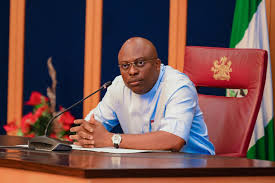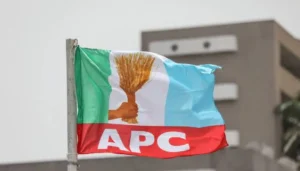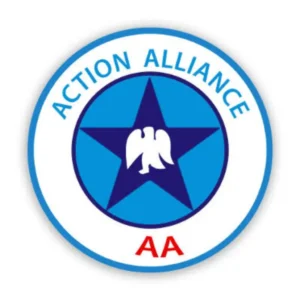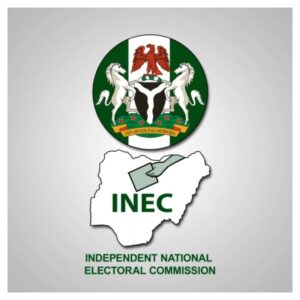In a recent ruling, the Federal High Court in Abuja ordered the Central Bank of Nigeria (CBN) to stop releasing funds to Rivers State. This decision, which affects money from the federal government typically allocated to support the state’s budget, has created a significant challenge for Governor Siminalayi Fubara’s administration. In response, Governor Fubara has appealed, hoping to overturn the ruling and secure critical funds for public services.
The court’s decision stems from issues related to the 2024 budget process in Rivers State. The ruling faction in the Rivers State House of Assembly, led by Speaker Martin Amaewhule, claims that the 2024 budget was passed illegally. Specifically, they argue that only four members of the Assembly, loyal to Governor Fubara, were present to approve the budget—far below the number required for a legal quorum.
Justice Joyce Abdulmalik of the Abuja Federal High Court ruled that Governor Fubara’s actions in pushing the budget through with minimal legislative support violated the Nigerian Constitution. She further stated that Fubara’s disbursement of funds without proper Assembly approval undermines constitutional order. The judgment halts the release of any funds to Rivers State until the budget is lawfully re-presented and approved by a legitimate Assembly.
Justice Abdulmalik’s ruling emphasizes several constitutional principles:
The court argued that the budget must be approved by a fully constituted House of Assembly, with sufficient members present.
The ruling insists that Fubara cannot enact a budget without the Assembly’s full representation, which is critical for legal governance and public accountability.
Justice Abdulmalik warned that operating without legislative oversight sets a dangerous precedent, potentially destabilizing democratic processes.
Governor Fubara’s administration is appealing the ruling, emphasizing the impact it could have on public services. Commissioner Joseph Johnson expressed confidence that the Court of Appeal will overturn the ruling, highlighting that funds are needed to pay civil servants, local government workers, and teachers. Johnson argued that blocking these funds could damage essential services and harm residents who rely on the government for salaries and social programs.
He also raised concerns about the initial trial process, noting that the court denied key motions from Fubara’s team, including a request to replace their lawyer and objections challenging the court’s jurisdiction. The appeal will address these procedural matters, along with the core budget issue.
The court’s decision has sparked varied responses from political leaders and civil society groups:
Former Vice President Atiku Abubakar voiced concern over the ruling, arguing that it risks heightening political tensions in Rivers State. Atiku suggested that the court’s involvement in state budget matters could disrupt governance and urged President Bola Tinubu to prioritize national stability over political interests.
People’s Democratic Party (PDP) urged both sides to focus on the welfare of Rivers State residents. National Youth Leader Timothy Osadolor emphasized the need for transparent governance and encouraged Fubara and his political opponents to seek common ground.
Civil Society Organizations (CSOs) had differing viewpoints. The Centre for Accountability and Open Leadership (CACOL) supported the judgment, arguing that it prevents the misuse of state resources by ensuring funds are only disbursed under lawful Assembly oversight. Conversely, the Civil Society Legislative Advocacy Centre (CISLAC) expressed concern over the ruling, urging the CBN and Accountant-General not to become entangled in state-level political conflicts.
If the court’s ruling stands, Rivers State may face a major funding gap. The freeze affects funds that cover salaries, local government operations, and public projects, which could impact civil servants, local council workers, and teachers. The state government worries that these essential services could face delays or interruptions if the ruling is not overturned.
Joseph Johnson, the Commissioner for Information, warned that the situation could harm local government workers, whose salaries depend on the blocked funds. He emphasized the need for timely funding, especially as the third tier of government (local councils) depends on federal allocations to sustain operations and pay employees.
As the case moves to the Court of Appeal, the ruling will be reviewed, and a final decision is expected to clarify whether the funds will remain frozen. For now, the state is relying on the appeal process to secure a quick resolution.
If the appeal is successful, the funds will be released, allowing public services to continue uninterrupted. If the ruling is upheld, however, the Rivers State government may need to seek alternative solutions, such as renegotiating budget terms with the Assembly or sourcing funds from different channels to keep essential services running.
This high-profile legal dispute has highlighted the complex balance between state governance and judicial oversight. For Rivers State, the outcome of the appeal could shape not only its financial stability but also its political landscape. As both sides await the appeal verdict, the stakes remain high for Governor Fubara, the Assembly, and the residents of Rivers State.







